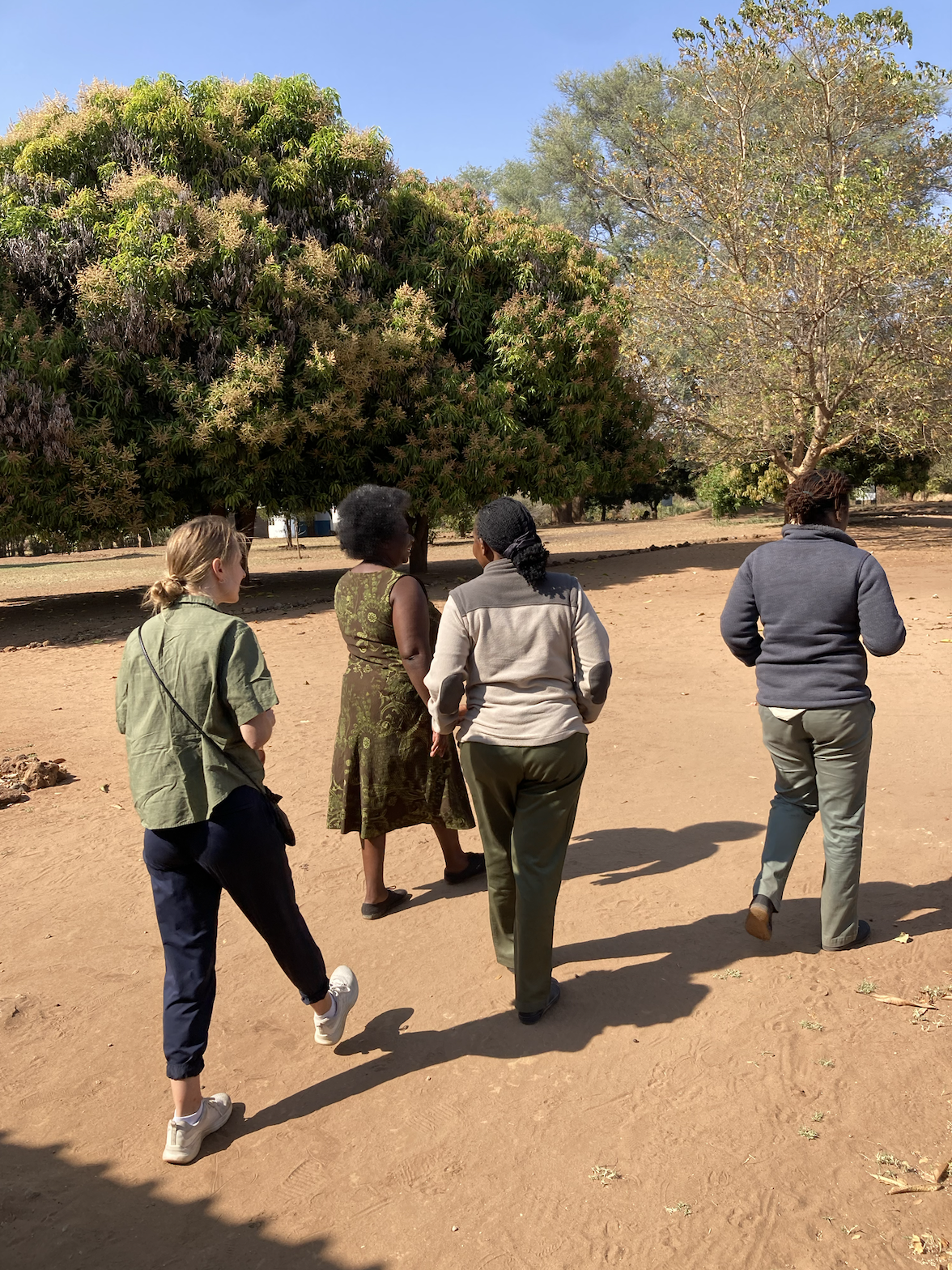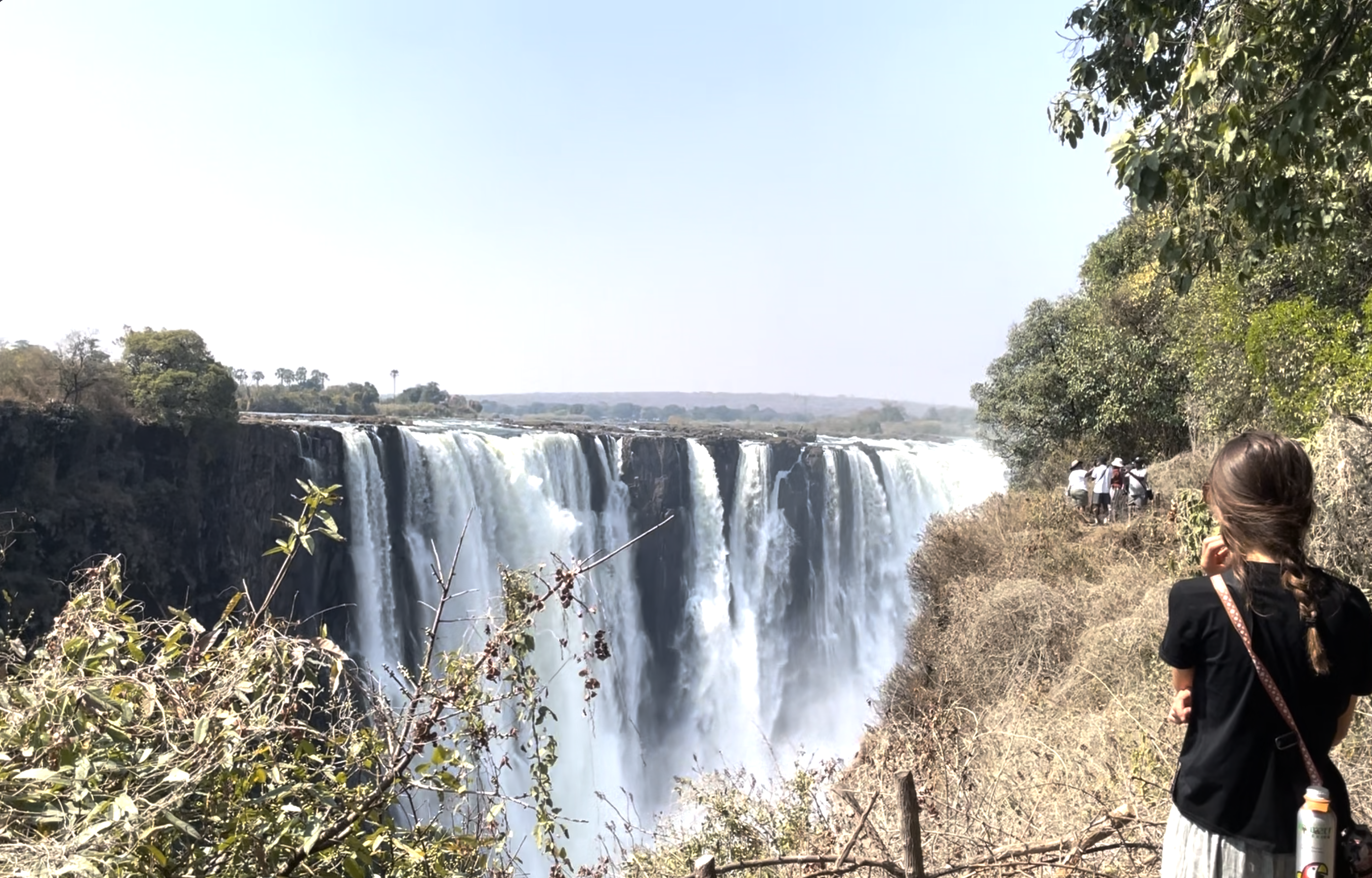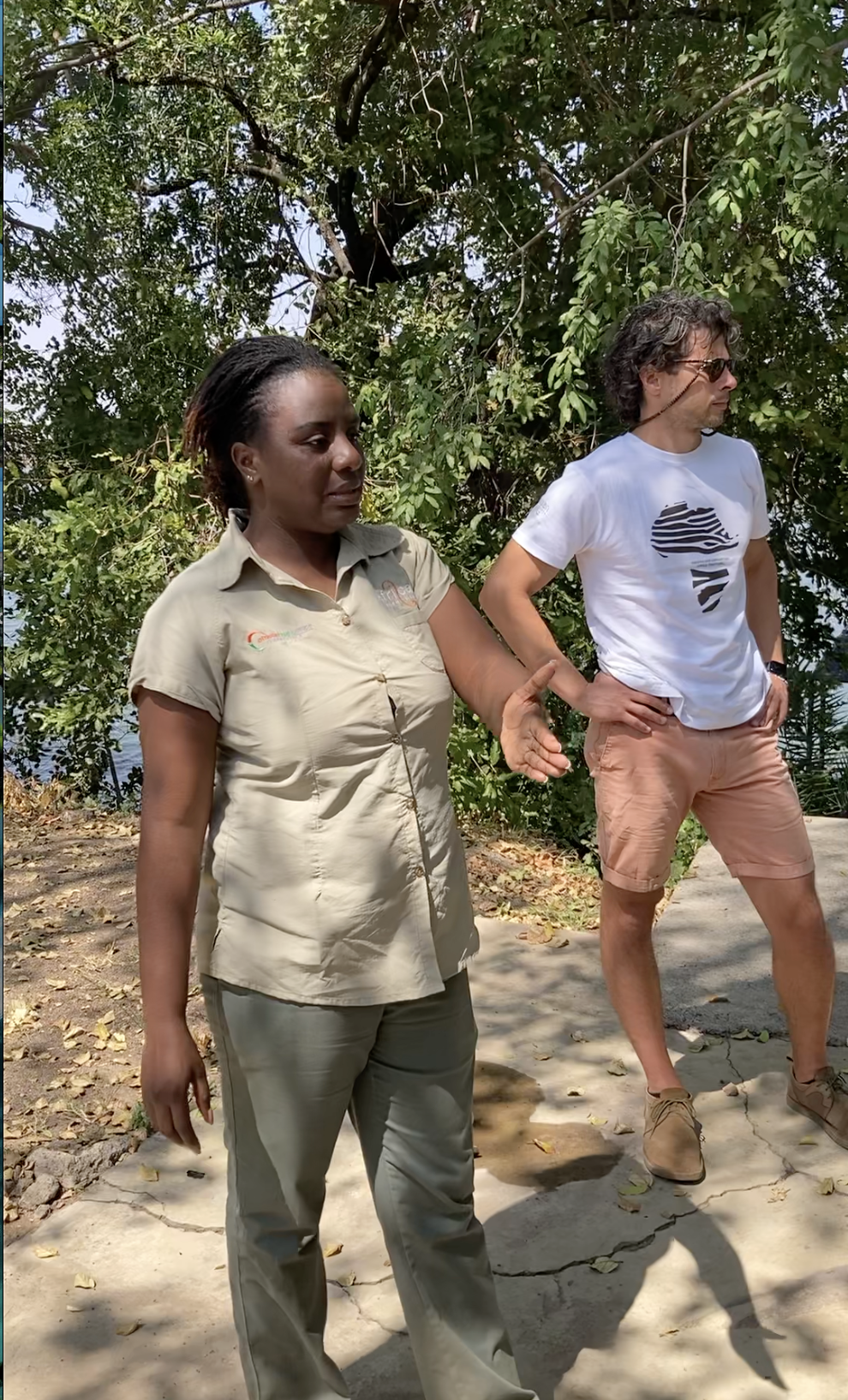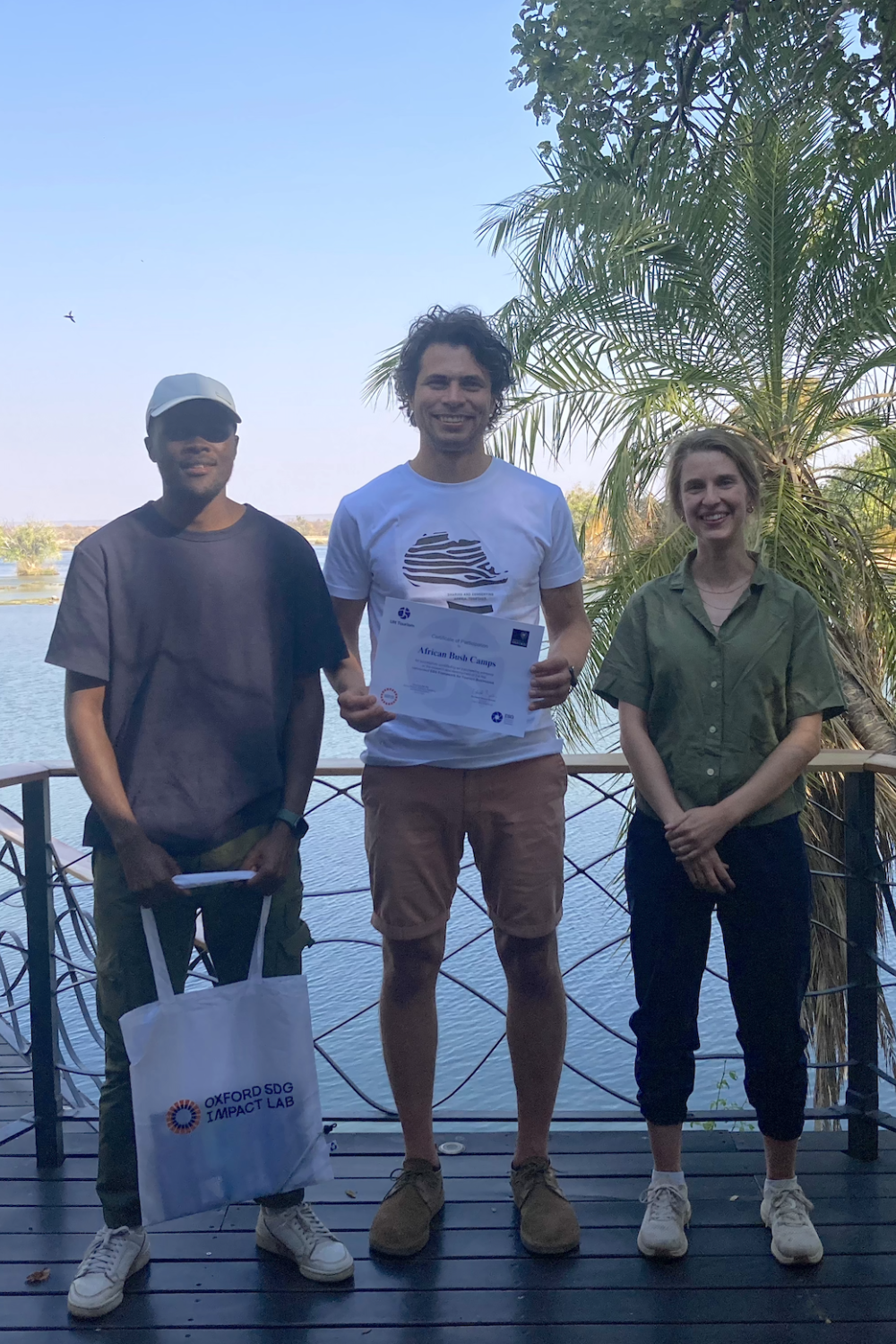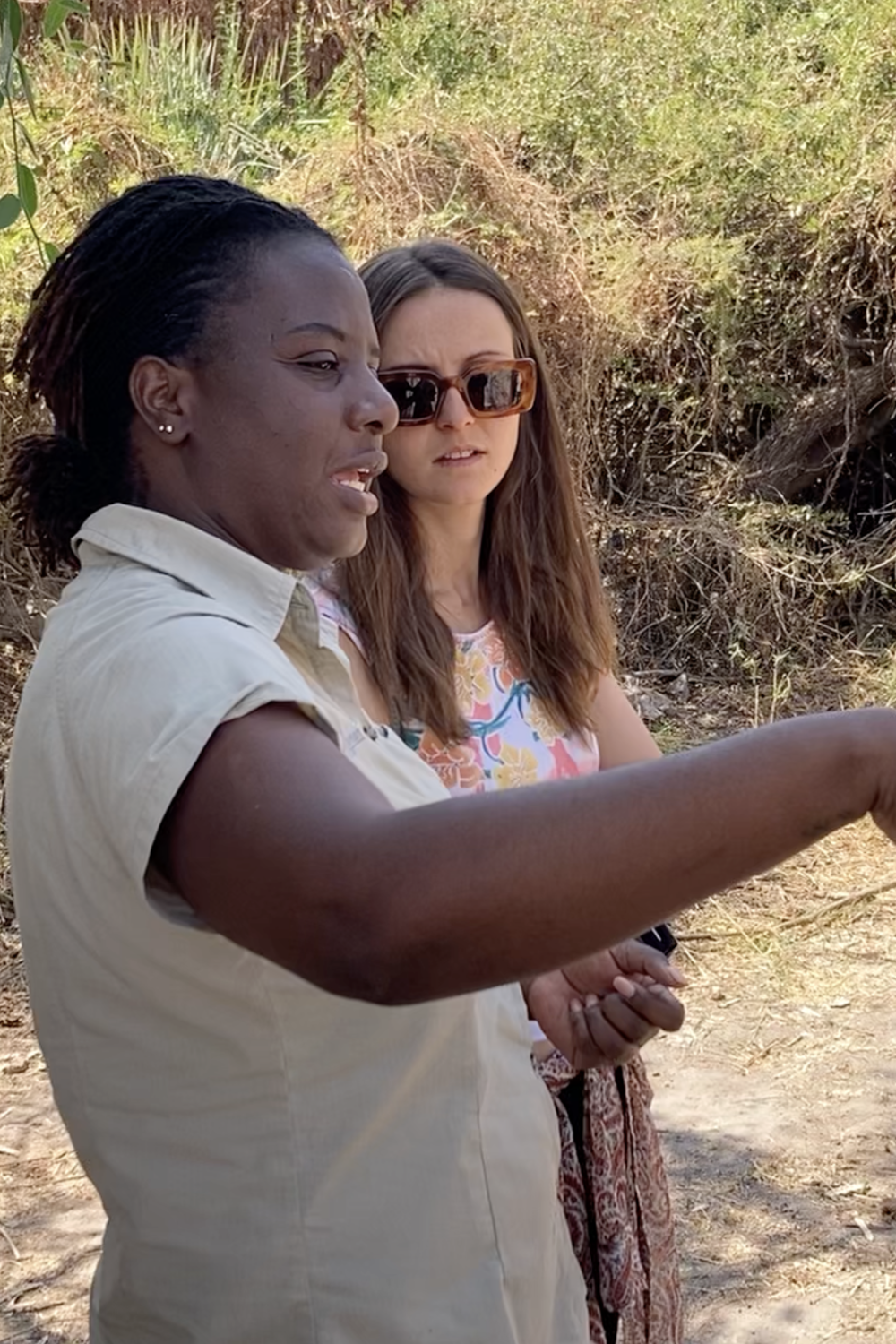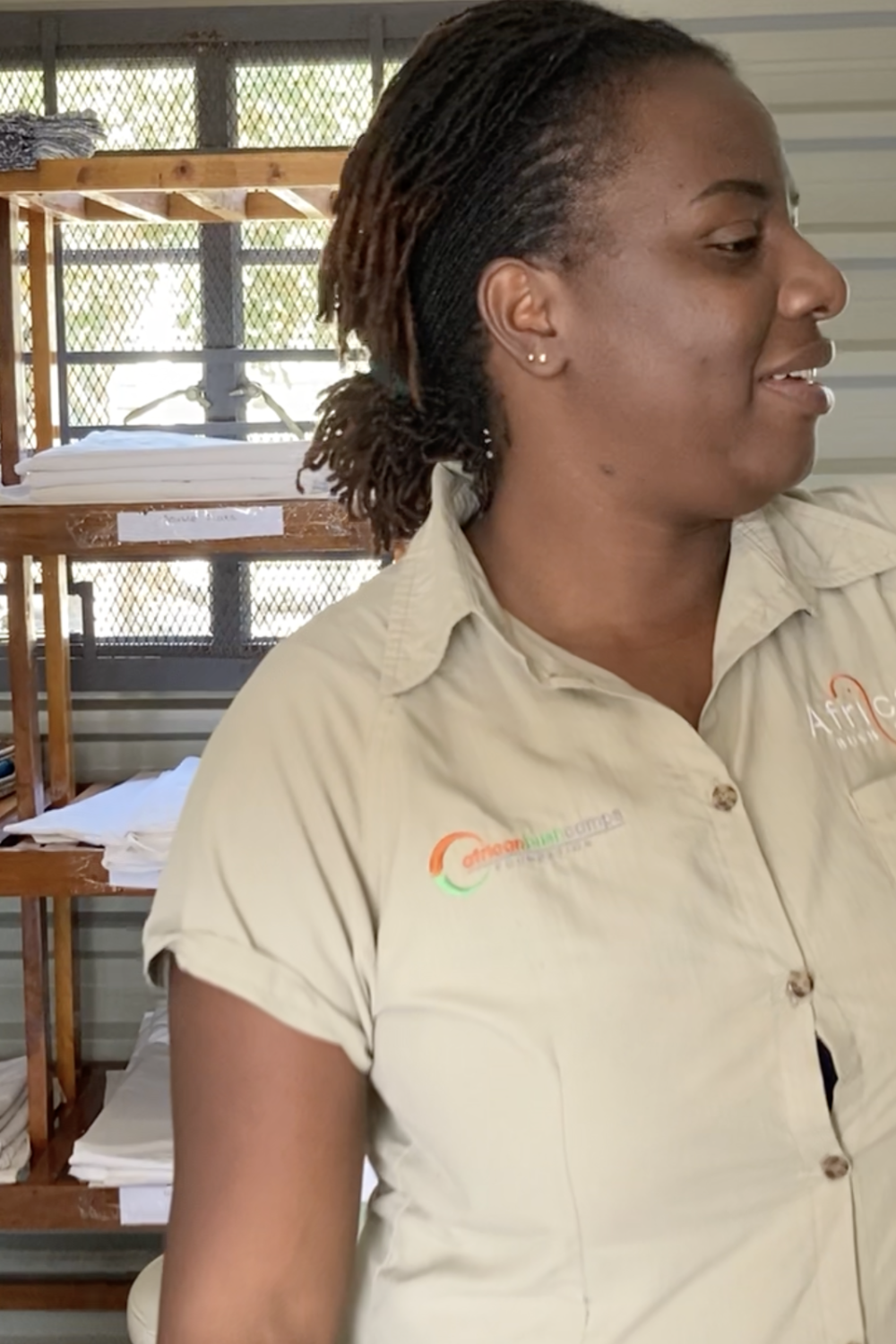African Bush Camps: Sharing and Conserving Africa, Together
Our SDG Impact Lab Fellows Amy Booth and Buntu Fanteso continue their journey across Africa, this time visiting African Bush Camps (ABC) at Thorntree River Lodge in Zambia. This visit shed light on how tourism can drive meaningful and sustainable change in local communities and ecosystems. The insights gained here will play a crucial role in shaping the environmental, social, and governance (ESG) framework for tourism businesses.
About African Bush Camps (ABC) & ABC Foundation (ABCF)
African Bush Camps was founded in 2006 by Beks Ndlovu, a Zimbabwean professional guide passionate about creating authentic safari experiences while preserving Africa's wilderness and having a long-lasting impact in communities. The company has grown to operate 17 camps across Zimbabwe, Zambia, and Botswana. African Bush Camps are deeply committed to sustainability and community engagement, blending luxury with conservation and community efforts.
The African Bush Camps Foundation is a non-profit organisation that has been working alongside African Bush Camps since 2006. The Foundation operates in the areas in which African Bush Camps resides, and proactively partners with local communities and other organisations to support critical community empowerment, education, and conservation projects. In doing so, the Foundation facilitates human-wildlife coexistence and the protection of species and landscapes.
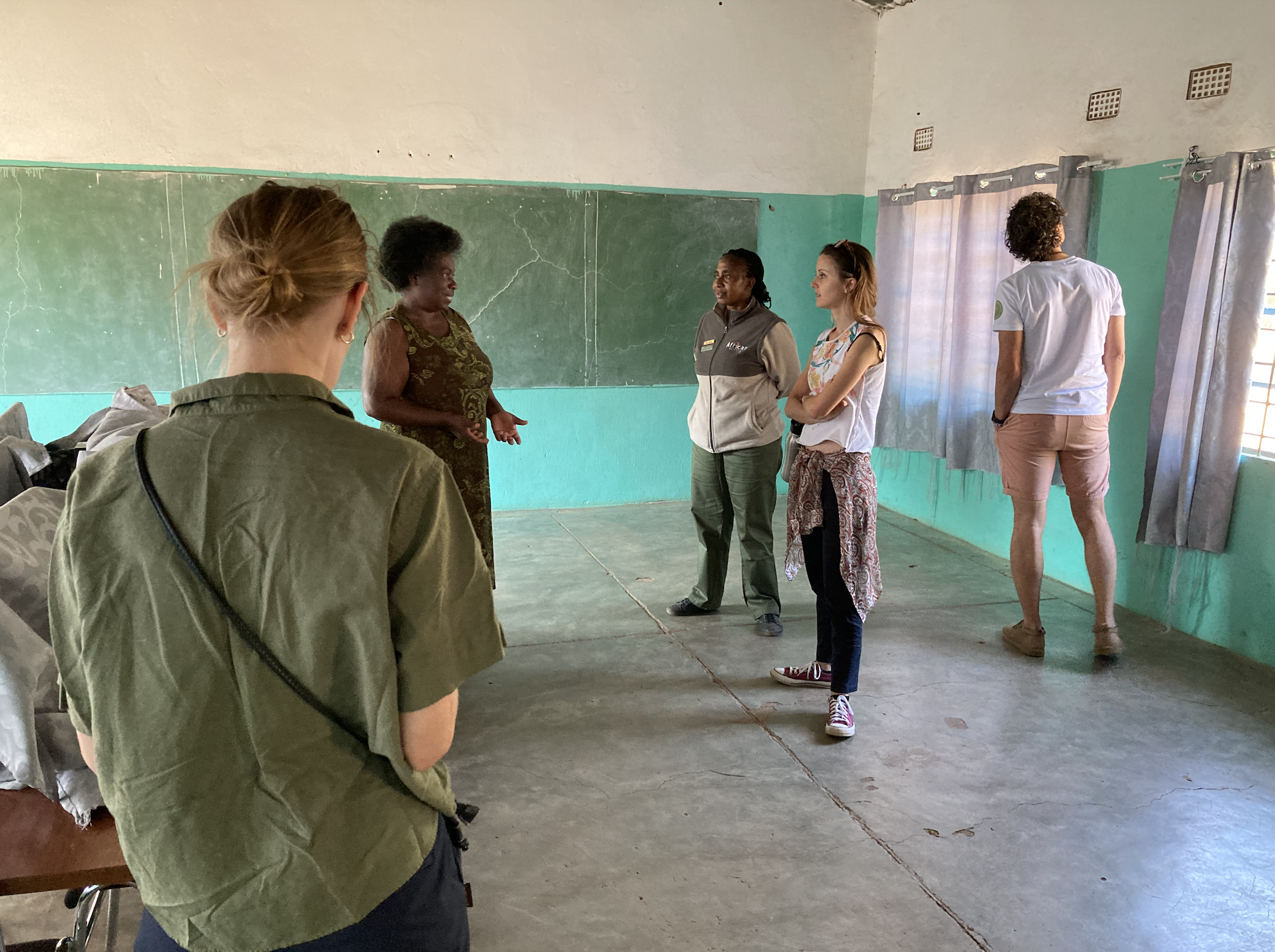
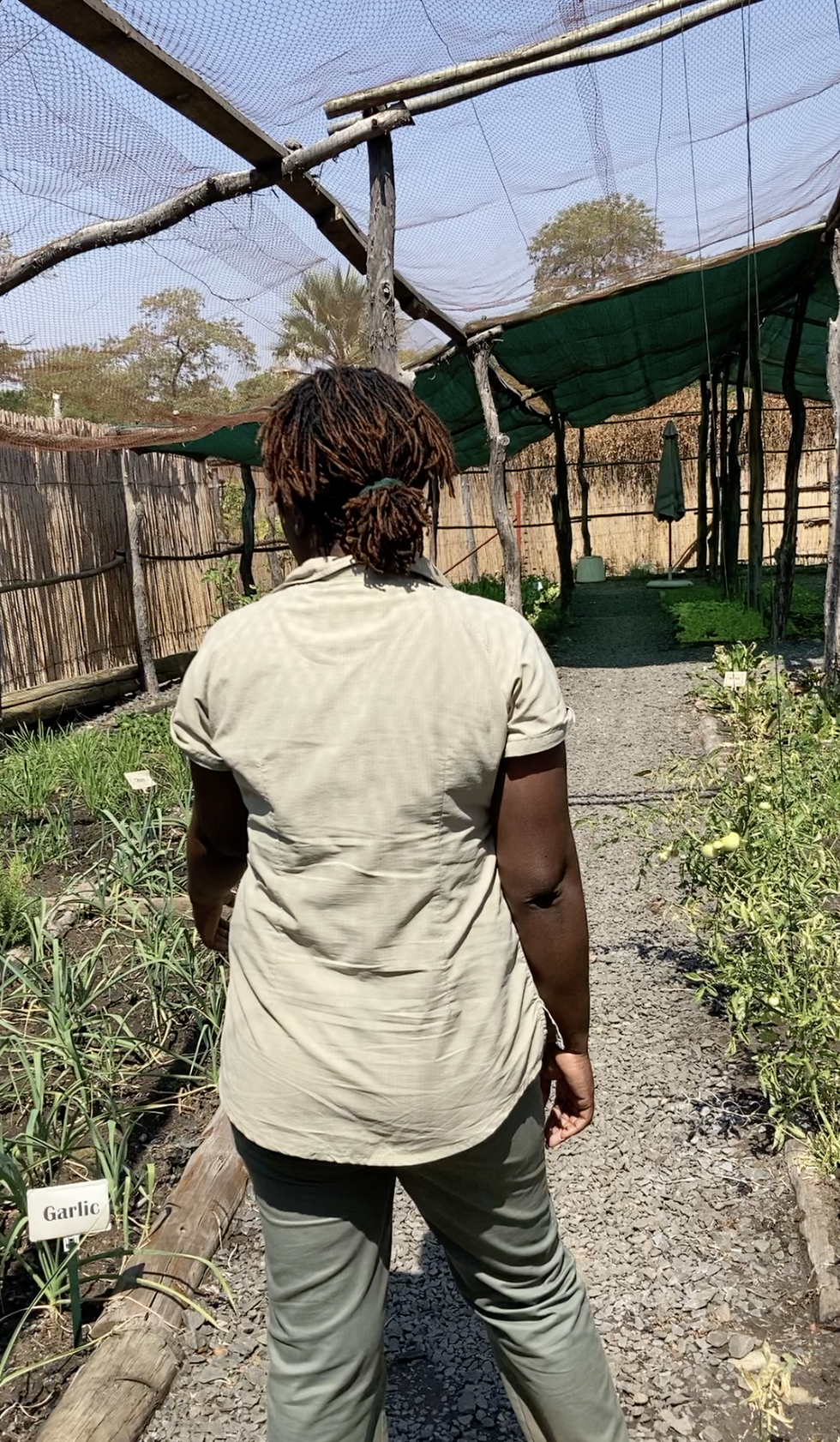
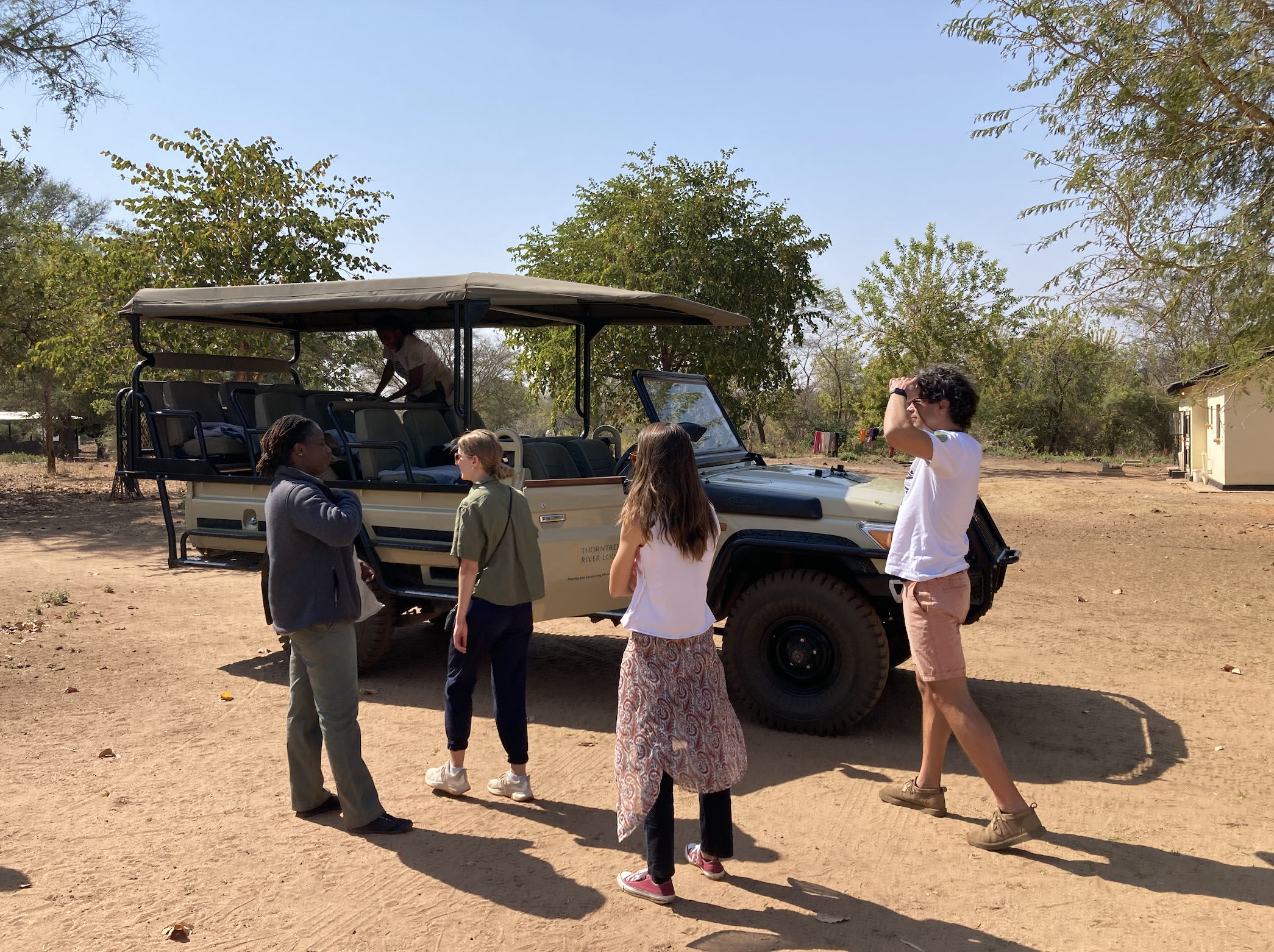
Highlights from the Visit to Thorntree River Lodge in Mosi-Oa-Tunya National Park, Zambia
A Beacon of Community Empowerment
ABC, through ABCF, run various community empowerment projects addressing challenges including unemployment, food scarcity, education, and healthcare. Stretching 11km from their Thorntree River Lodge, lies Maunga village with a population of 3,500 people whose lives have been transformed through African Bush Camps efforts.
Motivated by stories of poor maternal and child health outcomes a pivotal project that emerged from community consultations, was the establishment of a solar-powered clinic. The clinic took a year to build and has since become a critical health resource, attracting people from neighbouring communities. To support the clinic's growth, ABCF raised funds to house additional nurses nearby and further addressed the need for clean water by drilling a borehole.
In education, ABCF recognised challenges faced by students, such as long travel distances and hunger, which affected their academic performance. In response, ABCF instituted a nutritional programme which involves local women volunteering their time to prepare nutritious meals for the schools. They also funded backpacks and other stationery for the schools, ensuring they had the necessary supplies for the children. ABCF continues to support these and other initiatives, assisting with setting the communities in the best possible positions for success and enhancement in quality of life.
ABC/F demonstrates a commitment to empowering women by training female guides. By 2025, they aim to have trained 25 women, with opportunities to work across Zimbabwe, Zambia, and Botswana, all funded by the African Bush Camps Foundation. Additionally, they prioritise recruiting from the local villages, offering training and jobs, further strengthening the bond between the lodge and the local community.
Conservation at the Core – a Wild Path across Africa’s heartlands
African Bush Camps has a vision to conserve and restore wild areas across Botswana, Zambia, and Zimbabwe thereby creating thriving and connected landscapes and room for wildlife to roam. They engage in various conservation efforts to expand and protect conservation areas and to encourage co-existence between people and wildlife.
Recognising that human-wildlife conflict often arises out of socio-economic need, for example, local communities cutting trees to make charcoal or selling wood, the African Bush Camps Foundation engages in education of the communities on the value of nature.
Likewise, they have several initiatives to enable human-wildlife co-existence, for example creating safe spaces for livestock, reducing predation and associated conflict, and safe community washing points, to protect people against crocodiles.
They now focus on providing entrepreneurial opportunities that reduce reliance on deforestation and other practices that are detrimental to the environment, fostering a sustainable coexistence between people and nature.
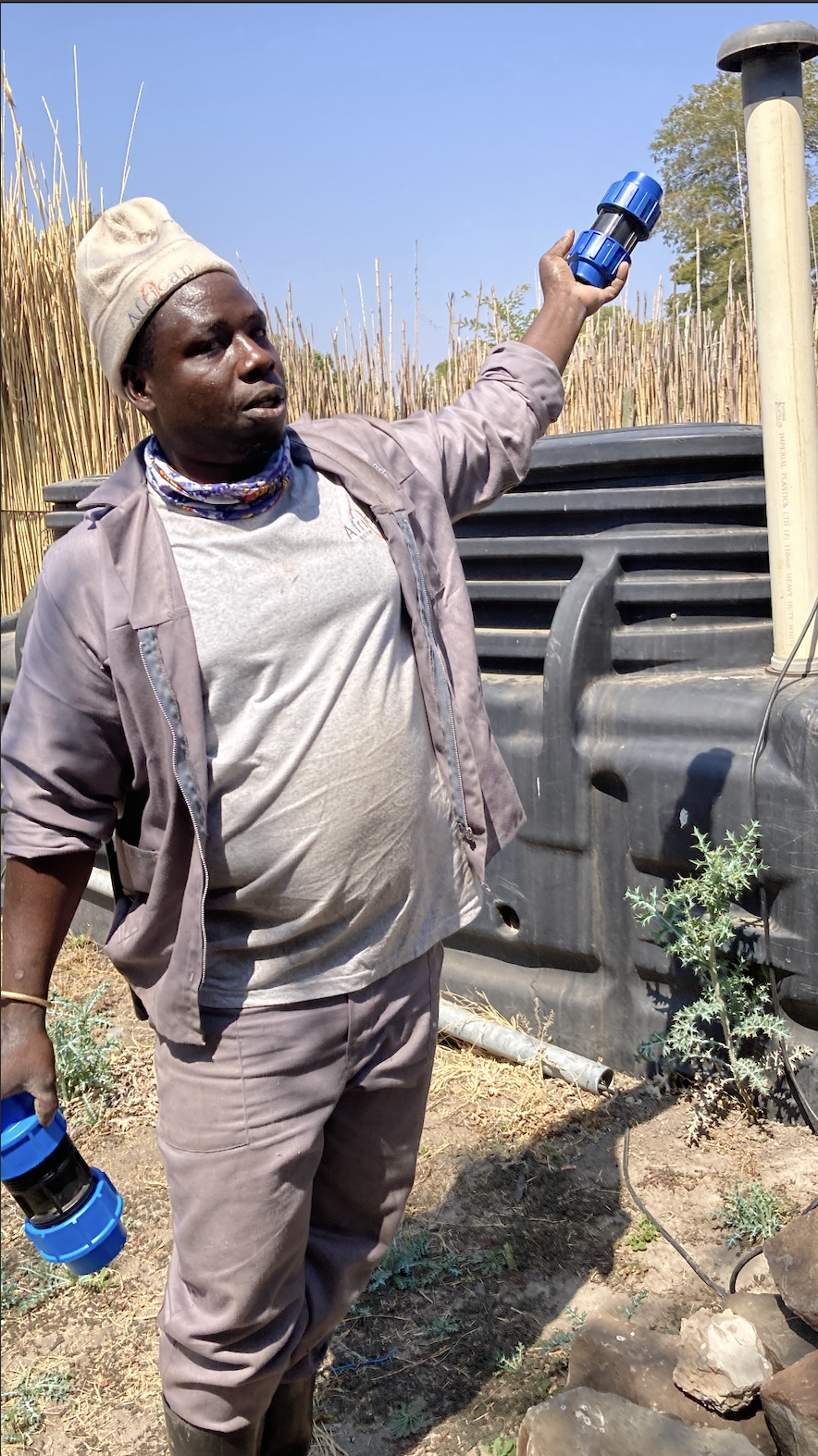
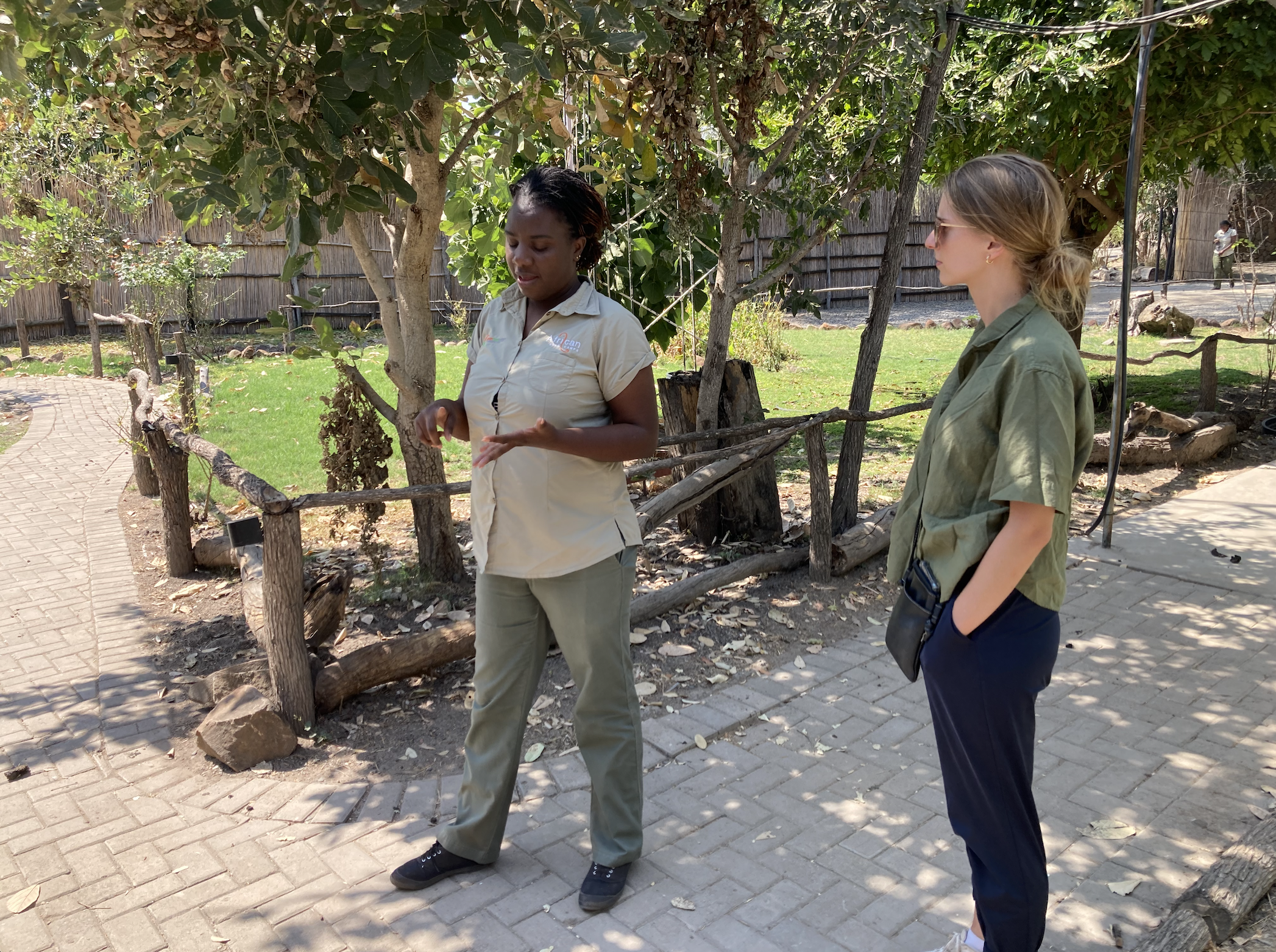
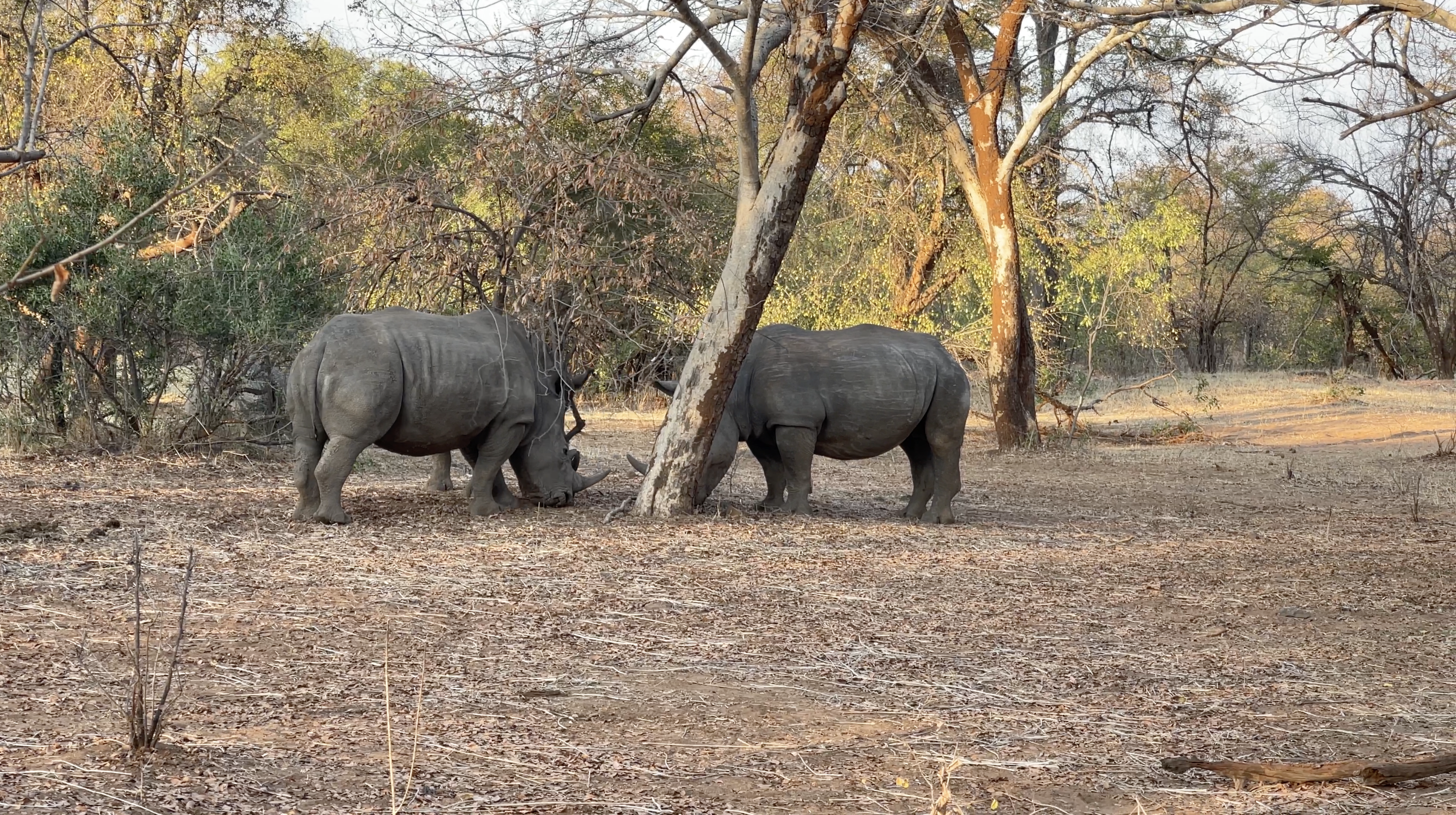
Guest Involvement and Support
Guests at African Bush Camps are encouraged to participate in and support these initiatives through informative conversations in camp, brochures placed throughout the lodge and the opportunity to visit the projects.
Each guest that stays at African Bush Camps contributes to the Foundation’s projects through a daily Community & Conservation Levy, supplemented by contributions from ABC’s own bottom line.
For those guests who feel inspired by ABC/F’s purpose and projects, there are also easy (and tax-deductible) ways to donate. Through regular interactions, newsletters and social media posts, guests are kept informed about community and conservation needs and can see firsthand how their contributions make a difference.
Sustainable Operations
ABCs sustainability extends behind the scenes, with a wastewater treatment systems at all camps ensuring no harmful water is reintroduced into nature also providing safe water for animals and alternative use on the camp. Solar power supports the majority of ABCs (camps) and ABCFs (community projects’) energy needs. This is achieved through the use of renewable energy at 16 out of 17 of their camps and at some of their health and education centres ensuring equitable access to cleaner energy beyond their operations.
ABCs unwavering commitment towards ensuring the welfare of the communities and environment, in and around the areas in which they operate, has seen them establish comprehensive waste management strategies across their camps. Some of the measures implemented include waste separation and recycled/ repurposing (where possible), composting (where facilities and resources permit), significant elimination of single-use plastics across all camps and engaging with local partners to find alternative waste management solutions.
ABC prioritises staff welfare which is why most of their camps have staff villages which are equipped with amenities required to ensure safe and conducive living spaces. They also provide skills and professional development opportunities which equip their staff with the necessary skillset to progress in their career.
Learn More and Get Involved
To discover more about African Bush Camps & African Bush Camps Foundation and their commitment to sustainable tourism, visit their websites and follow them on social media.
African Bush Camps stands as a leader in sustainable tourism, demonstrating how thoughtful, community-driven initiatives can create lasting positive impacts on both people and the environment.
Follow along as they uncover insights from the next destination The Datai Langkawi
